车辚辚
马萧萧
行人弓箭各在腰
耶娘妻子走相送
尘埃不见咸阳桥
牵衣顿足阑道哭
哭声直上干云霄
道傍过者问行人
行人但云点行频
或从十五北防河
便至四十西营田
去时里正与裹头
归来头白还戍边
边亭流血成海水
武皇开边意未已
君不闻汉家山东二百州
千村万落生荆杞
纵有健妇把锄犁
禾生陇亩无东西
况复秦兵耐苦战
被驱不异犬与鸡
长者虽有问
役夫敢申恨
且如今年冬
未休关西卒
县官急索租
租税从何出
信知生男恶
反是生女好
生女犹得嫁比邻
生男埋没随百草
君不见青海头
古来白骨无人收
新鬼烦冤旧鬼哭
天阴雨湿声啾啾
马萧萧
行人弓箭各在腰
耶娘妻子走相送
尘埃不见咸阳桥
牵衣顿足阑道哭
哭声直上干云霄
道傍过者问行人
行人但云点行频
或从十五北防河
便至四十西营田
去时里正与裹头
归来头白还戍边
边亭流血成海水
武皇开边意未已
君不闻汉家山东二百州
千村万落生荆杞
纵有健妇把锄犁
禾生陇亩无东西
况复秦兵耐苦战
被驱不异犬与鸡
长者虽有问
役夫敢申恨
且如今年冬
未休关西卒
县官急索租
租税从何出
信知生男恶
反是生女好
生女犹得嫁比邻
生男埋没随百草
君不见青海头
古来白骨无人收
新鬼烦冤旧鬼哭
天阴雨湿声啾啾
envoyé par Bartleby - 9/11/2011 - 09:06
Langue: anglais
Traduzione inglese da Chinese Poems.
SONG OF THE WAGONS (or BALLAD OF THE ARMY CARTS)
Wagons rumble rumble
Hhorses whinny whinny
Foot person bow arrow each at waist
Father mother wife children go mutual see off
Dust dust not see Xianyang bridge
Pull clothes stamp foot bar way weep
Weep sound directly up strike clouds clouds
Road side passerby ask foot person
Foot person only say mark down often
Some from ten five north guard river
Even until four ten west army fields
Leave time village chief give bind head
Return come head white go back garrison border
Border post shed blood become sea water
Warlike emperor expand border idea no end
Gentleman not see Han homes hill east two hundred districts
1000 villages 10000 hamlets grow thorns trees
Though be strong women hold hoe plough
Seed grow dyked field not order
Besides again Qin soldier withstand bitter fighting
Be driven not different dogs and chickens
Venerable elder though be ask
Battle person dare state bitterness
Even like this year winter
Not stop pass west soldier
District official urgent demand tax
Tax tax way how pay
True know produce males bad
Contrast be produce females good
Produce female still get married neighbour
Produce male bury follow hundred grass
Gentleman not see Qinghai edge
Past come white skeleton no person gather
New ghost vexed injustice old ghosts weep
Heaven dark rain wet sound screech screech
Wagons rumble rumble
Hhorses whinny whinny
Foot person bow arrow each at waist
Father mother wife children go mutual see off
Dust dust not see Xianyang bridge
Pull clothes stamp foot bar way weep
Weep sound directly up strike clouds clouds
Road side passerby ask foot person
Foot person only say mark down often
Some from ten five north guard river
Even until four ten west army fields
Leave time village chief give bind head
Return come head white go back garrison border
Border post shed blood become sea water
Warlike emperor expand border idea no end
Gentleman not see Han homes hill east two hundred districts
1000 villages 10000 hamlets grow thorns trees
Though be strong women hold hoe plough
Seed grow dyked field not order
Besides again Qin soldier withstand bitter fighting
Be driven not different dogs and chickens
Venerable elder though be ask
Battle person dare state bitterness
Even like this year winter
Not stop pass west soldier
District official urgent demand tax
Tax tax way how pay
True know produce males bad
Contrast be produce females good
Produce female still get married neighbour
Produce male bury follow hundred grass
Gentleman not see Qinghai edge
Past come white skeleton no person gather
New ghost vexed injustice old ghosts weep
Heaven dark rain wet sound screech screech
envoyé par Bartleby - 9/11/2011 - 09:07
Langue: chinois
Trascrizione in pinyin da Chinese Poems.
BĪNG CHĒ XÍNG
chē lín lín
mǎ xiāo xiāo
xíng rén gōng jiàn gè zài yāo
yē niáng qī zǐ zǒu xiāng sòng
chén āi bú jiàn xián yáng qiáo
qiān yī dùn zú lán dào kū
kū shēng zhí shàng gān yún xiāo
dào páng guò zhě wèn xíng rén
xíng rén dàn yún diǎn xíng pín
huò cóng shí wǔ běi fáng hé
biàn zhì sì shí xī yíng tián
qù shí lǐ zhèng yǔ guǒ tóu
guī lái tóu bái huán shù biān
biān tíng liú xuè chéng hǎi shuǐ
wǔ huáng kāi biān yì wèi yǐ
jūn bù wén hàn jiā shān dōng èr bǎi zhōu
qiān cūn wàn luò shēng jīng qǐ
zòng yǒu jiàn fù bǎ chú lí
hé shēng lǒng mǔ wú dōng xī
kuàng fù qín bīng nài kǔ zhàn
bèi qū bú yì quǎn yǔ jī
zhǎng zhě suī yǒu wèn
yì fū gǎn shēn hèn
qiě rú jīn nián dōng
wèi xiū guān xī zú
xiàn guān jí suǒ zū
zū shuì cóng hé chū
xìn zhī shēng nán è
fǎn shì shēng nǚ hǎo
shēng nǚ yóu dé jià bǐ lín
shēng nán mái mò suí bǎi cǎo
jūn bú jiàn qīng hǎi tóu
gǔ lái bái gǔ wú rén shōu
xīn guǐ fán yuàn jiù guǐ kū
tiān yīn yǔ shī shēng jiū jiū
chē lín lín
mǎ xiāo xiāo
xíng rén gōng jiàn gè zài yāo
yē niáng qī zǐ zǒu xiāng sòng
chén āi bú jiàn xián yáng qiáo
qiān yī dùn zú lán dào kū
kū shēng zhí shàng gān yún xiāo
dào páng guò zhě wèn xíng rén
xíng rén dàn yún diǎn xíng pín
huò cóng shí wǔ běi fáng hé
biàn zhì sì shí xī yíng tián
qù shí lǐ zhèng yǔ guǒ tóu
guī lái tóu bái huán shù biān
biān tíng liú xuè chéng hǎi shuǐ
wǔ huáng kāi biān yì wèi yǐ
jūn bù wén hàn jiā shān dōng èr bǎi zhōu
qiān cūn wàn luò shēng jīng qǐ
zòng yǒu jiàn fù bǎ chú lí
hé shēng lǒng mǔ wú dōng xī
kuàng fù qín bīng nài kǔ zhàn
bèi qū bú yì quǎn yǔ jī
zhǎng zhě suī yǒu wèn
yì fū gǎn shēn hèn
qiě rú jīn nián dōng
wèi xiū guān xī zú
xiàn guān jí suǒ zū
zū shuì cóng hé chū
xìn zhī shēng nán è
fǎn shì shēng nǚ hǎo
shēng nǚ yóu dé jià bǐ lín
shēng nán mái mò suí bǎi cǎo
jūn bú jiàn qīng hǎi tóu
gǔ lái bái gǔ wú rén shōu
xīn guǐ fán yuàn jiù guǐ kū
tiān yīn yǔ shī shēng jiū jiū
envoyé par Bartleby - 9/11/2011 - 09:07
Langue: anglais
Altra traduzione inglese da Chinese Poems.
SONG OF THE WAGONS (or BALLAD OF THE ARMY CARTS)
The wagons rumble and roll,
The horses whinny and neigh,
The conscripts each have bows and arrows at their waists.
Their parents, wives and children run to see them off,
So much dust's stirred up, it hides the Xianyang bridge.
They pull clothes, stamp their feet and, weeping, bar the way,
The weeping voices rise straight up and strike the clouds.
A passer-by at the roadside asks a conscript why,
The conscript answers only that drafting happens often.
"At fifteen, many were sent north to guard the river,
Even at forty, they had to till fields in the west.
When we went away, the elders bound our heads,
Returning with heads white, we're sent back off to the frontier.
At the border posts, shed blood becomes a sea,
The martial emperor's dream of expansion has no end.
Have you not seen the two hundred districts east of the mountains,
Where thorns and brambles grow in countless villages and hamlets?
Although there are strong women to grasp the hoe and the plough,
They grow some crops, but there's no order in the fields.
What's more, we soldiers of Qin withstand the bitterest fighting,
We're always driven onwards just like dogs and chickens.
Although an elder can ask me this,
How can a soldier dare to complain?
Even in this winter time,
Soldiers from west of the pass keep moving.
The magistrate is eager for taxes,
But how can we afford to pay?
We know now having boys is bad,
While having girls is for the best;
Our girls can still be married to the neighbours,
Our sons are merely buried amid the grass.
Have you not seen on the border of Qinghai,
The ancient bleached bones no man's gathered in?
The new ghosts are angered by injustice, the old ghosts weep,
Moistening rain falls from dark heaven on the voices' screeching."
The wagons rumble and roll,
The horses whinny and neigh,
The conscripts each have bows and arrows at their waists.
Their parents, wives and children run to see them off,
So much dust's stirred up, it hides the Xianyang bridge.
They pull clothes, stamp their feet and, weeping, bar the way,
The weeping voices rise straight up and strike the clouds.
A passer-by at the roadside asks a conscript why,
The conscript answers only that drafting happens often.
"At fifteen, many were sent north to guard the river,
Even at forty, they had to till fields in the west.
When we went away, the elders bound our heads,
Returning with heads white, we're sent back off to the frontier.
At the border posts, shed blood becomes a sea,
The martial emperor's dream of expansion has no end.
Have you not seen the two hundred districts east of the mountains,
Where thorns and brambles grow in countless villages and hamlets?
Although there are strong women to grasp the hoe and the plough,
They grow some crops, but there's no order in the fields.
What's more, we soldiers of Qin withstand the bitterest fighting,
We're always driven onwards just like dogs and chickens.
Although an elder can ask me this,
How can a soldier dare to complain?
Even in this winter time,
Soldiers from west of the pass keep moving.
The magistrate is eager for taxes,
But how can we afford to pay?
We know now having boys is bad,
While having girls is for the best;
Our girls can still be married to the neighbours,
Our sons are merely buried amid the grass.
Have you not seen on the border of Qinghai,
The ancient bleached bones no man's gathered in?
The new ghosts are angered by injustice, the old ghosts weep,
Moistening rain falls from dark heaven on the voices' screeching."
envoyé par Bartleby - 9/11/2011 - 09:08
Langue: anglais
Traduzione inglese di W. J. B. Fletcher da Black Cat Poems.
THE CHARIOTS GO FORTH TO WAR
Chariots rumble and roll: horses whinny and neigh.
footmen at their girdle bows and arrows display.
Fathers, mothers, wives, and children by them go--
'Tis not the choking dust alone that strangles what they say!
Their clothes they clutch; their feet they stamp; their crush blocks up the way.
The sounds of weeping mount above the clouds that gloom the day.
The passers-by inquire of them, "But whither do you go?"
They only say: "We're mustering--do not disturb us so."
These fifteen years and upwards, the Northern Pass defend;
And still at forty years of age their service does not end.
All young they left their villages--just registered were they--
The war they quitted sees again the same men worn and gray.
And all along the boundary their blood has made a sea.
But never till the World is his, will Wu Huang happy be!
Have you not heard--in Shantung there two hundred districts lie.
All overgrown with briar and weed and wasted utterly?
The stouter women swing and hoe and guide the stubborn plough,
The fields have lost their boundaries--the corn grows wildly now.
And routed bands with hunger grim come down in disarray
To rob and rend and outrage them, and treat them as a prey.
Although the leaders question them, the soldiers' plaints resound.
And winter has not stopped the war upon the western bound.
And war needs funds; the Magistrates for taxes press each day.
The land tax and the duties--Ah! how shall these be found?
In times like this stout sons to bear is sorrow and dismay.
Far better girls--to marry, to a home not far away.
But sons!--are buried in the grass!--yon Tsaidam's waste survey!
The bones of those who fell before are bleaching on the plain.
Their spirits weep our ghosts to hear lamenting all their pain.
Beneath the gloomy sky there runs a wailing in the rain.
Chariots rumble and roll: horses whinny and neigh.
footmen at their girdle bows and arrows display.
Fathers, mothers, wives, and children by them go--
'Tis not the choking dust alone that strangles what they say!
Their clothes they clutch; their feet they stamp; their crush blocks up the way.
The sounds of weeping mount above the clouds that gloom the day.
The passers-by inquire of them, "But whither do you go?"
They only say: "We're mustering--do not disturb us so."
These fifteen years and upwards, the Northern Pass defend;
And still at forty years of age their service does not end.
All young they left their villages--just registered were they--
The war they quitted sees again the same men worn and gray.
And all along the boundary their blood has made a sea.
But never till the World is his, will Wu Huang happy be!
Have you not heard--in Shantung there two hundred districts lie.
All overgrown with briar and weed and wasted utterly?
The stouter women swing and hoe and guide the stubborn plough,
The fields have lost their boundaries--the corn grows wildly now.
And routed bands with hunger grim come down in disarray
To rob and rend and outrage them, and treat them as a prey.
Although the leaders question them, the soldiers' plaints resound.
And winter has not stopped the war upon the western bound.
And war needs funds; the Magistrates for taxes press each day.
The land tax and the duties--Ah! how shall these be found?
In times like this stout sons to bear is sorrow and dismay.
Far better girls--to marry, to a home not far away.
But sons!--are buried in the grass!--yon Tsaidam's waste survey!
The bones of those who fell before are bleaching on the plain.
Their spirits weep our ghosts to hear lamenting all their pain.
Beneath the gloomy sky there runs a wailing in the rain.
envoyé par Bartleby - 9/11/2011 - 09:09
Langue: italien
Traduzione italiana di Giovanni Gallo

La traduzione è ripresa da
SULLE RIVE DEL FIUME AZZURRO
Il sito di Giovanni Gallo dedicato alla cultura cinese

La traduzione è ripresa da
SULLE RIVE DEL FIUME AZZURRO
Il sito di Giovanni Gallo dedicato alla cultura cinese
IL CANTO DEI CARRI DA GUERRA
Rombano le ruote dei carri, nitriscono i cavalli,
gli uomini si mettono in fila, ciascuno con arco e faretra.
Ah! Le madri, le mogli, i figli accorrono a salutarli.
Tanta è la polvere sul ponte che non si vede più il sole.
Li trattengono per le maniche, cercano di fermarli, piangono.
I passanti curiosi interrogano gli uomini in marcia,
ma questi sanno solo rispondere: "Ci mandano lontano, lontano".
A quindici anni sono già spediti al nord a difendere le frontiere,
a quaranta sono ancora trattenuti nelle colonie militari dell'ovest.
Al momento di partire il capovillaggio li ha aiutati
ad avvolgersi il turbante intorno alla testa.
Avanti, indietro, le teste sono ormai canute
ed essi sono ancora là, di guardia ai confini,
in quelle guarnigioni di frontiera dove il sangue scorre a fiumi.
Il nostro bellicoso imperatore ama le conquiste
e non intende fermarsi.
Non hai sentito?
Ad est delle montagne, nella terra degli Han, ci sono duecento distretti,
ma in innumerevoli villaggi crescono ormai solo rovi e piante selvatiche.
Anche se donne coraggiose hanno preso in mano le zappe e gli aratri,
non spunta più grano nei campi, né ad oriente, né ad occidente.
Ancora una volta i soldati dei Qin affrontano aspre, atroci battaglie.
Li comandano come se fossero bestie senz'anima.
Potrebbero chiederne ragione ai loro capi,
ma oseranno mai i poveri soldati lamentarsi della loro sorte?
Ed ora, ad esempio, in pieno inverno, invece di lasciarli riposare,
li spediscono in gran fretta ad ovest dei valichi.
Le autorità locali fanno a gara nell'imporci gabelle.
Da dove tireremo fuori i soldi per pagare imposte e tasse?
Abbiamo imparato che è davvero una disgrazia avere un figlio maschio
e che, invece, puoi considerarti fortunato se ti nasce una femmina.
Almeno, una femmina riuscirai ancora a maritarla in casa del vicino,
mentre un maschio lo seppelliranno tra gli sterpi.
In riva al Lago Azzurro, nessuno più raccoglie le bianche ossa.
I nuovi fantasmi si lamentano del loro amaro destino, i vecchi piangono.
Nel cielo nuvoloso, umido di pioggia, si odono flebili gemiti.
Rombano le ruote dei carri, nitriscono i cavalli,
gli uomini si mettono in fila, ciascuno con arco e faretra.
Ah! Le madri, le mogli, i figli accorrono a salutarli.
Tanta è la polvere sul ponte che non si vede più il sole.
Li trattengono per le maniche, cercano di fermarli, piangono.
I passanti curiosi interrogano gli uomini in marcia,
ma questi sanno solo rispondere: "Ci mandano lontano, lontano".
A quindici anni sono già spediti al nord a difendere le frontiere,
a quaranta sono ancora trattenuti nelle colonie militari dell'ovest.
Al momento di partire il capovillaggio li ha aiutati
ad avvolgersi il turbante intorno alla testa.
Avanti, indietro, le teste sono ormai canute
ed essi sono ancora là, di guardia ai confini,
in quelle guarnigioni di frontiera dove il sangue scorre a fiumi.
Il nostro bellicoso imperatore ama le conquiste
e non intende fermarsi.
Non hai sentito?
Ad est delle montagne, nella terra degli Han, ci sono duecento distretti,
ma in innumerevoli villaggi crescono ormai solo rovi e piante selvatiche.
Anche se donne coraggiose hanno preso in mano le zappe e gli aratri,
non spunta più grano nei campi, né ad oriente, né ad occidente.
Ancora una volta i soldati dei Qin affrontano aspre, atroci battaglie.
Li comandano come se fossero bestie senz'anima.
Potrebbero chiederne ragione ai loro capi,
ma oseranno mai i poveri soldati lamentarsi della loro sorte?
Ed ora, ad esempio, in pieno inverno, invece di lasciarli riposare,
li spediscono in gran fretta ad ovest dei valichi.
Le autorità locali fanno a gara nell'imporci gabelle.
Da dove tireremo fuori i soldi per pagare imposte e tasse?
Abbiamo imparato che è davvero una disgrazia avere un figlio maschio
e che, invece, puoi considerarti fortunato se ti nasce una femmina.
Almeno, una femmina riuscirai ancora a maritarla in casa del vicino,
mentre un maschio lo seppelliranno tra gli sterpi.
In riva al Lago Azzurro, nessuno più raccoglie le bianche ossa.
I nuovi fantasmi si lamentano del loro amaro destino, i vecchi piangono.
Nel cielo nuvoloso, umido di pioggia, si odono flebili gemiti.
envoyé par Bartleby - 9/11/2011 - 09:09
Ho visto con piacere che avete riportato su questo sito la mia traduzione italiana del "Canto dei carri da guerra" di Du Fu e di alcuni versi della "Canzone dell'eterno rimpianto" di Bai Juyi che avevo pubblicato su China History Forum.
Potreste per favore indicare in calce che le traduzioni sono di Giovanni Gallo e menzionare eventualmente il nuovo sito su cui il testo può essere trovato, con molte altre mie traduzioni dal cinese: "Sulle rive del fiume azzurro"?
Molte grazie e cordiali saluti.
Giovanni Gallo
Potreste per favore indicare in calce che le traduzioni sono di Giovanni Gallo e menzionare eventualmente il nuovo sito su cui il testo può essere trovato, con molte altre mie traduzioni dal cinese: "Sulle rive del fiume azzurro"?
Molte grazie e cordiali saluti.
Giovanni Gallo
giovangallo@hotmail.com - 24/5/2015 - 23:23
Carissimo Giovanni, come puoi vedere, "Sulle rive del fiume azzurro" è stato messo nel debito risalto anche con la sua bella immagine. Ti preghiamo naturalmente di segnalarci (o di inserire direttamente) altre composizioni cinesi che potrebbero essere in linea con il nostro sito, ringraziandoti per le traduzioni già esistenti.
CCG/AWS Staff - 25/5/2015 - 00:20
×
![]()

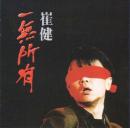
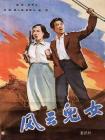


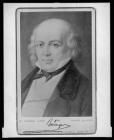
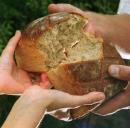
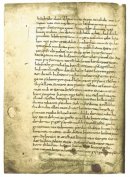
[750 o 751]
Versi del grande poeta cinese Dù Fǔ.
Musica del compositore e direttore corale canadese Larry Nickel, dalla sua opera forse più famosa, il “Requiem for Peace” composto nel 2006 (e che che verrà eseguito a Torino il prossimo anno nell’ambito del festival Europa Cantat XVIII).
Testo trovato su Chinese Poems.
Dù Fǔ è stato con Lǐ Bái il più importante poeta cinese vissuto sotto la dinastia Tang.
La sua vita, come quella di milioni di cinesi dell’epoca, fu sconvolta dalle guerre continue scatenate dai voraci Tang per espandere l’Impero e per contenere ribellioni e spinte separatiste varie, specie nei distretti del nord.
Questa poesia venne scritta mentre i soldati imperiali venivano spediti a combattere contro uiguri, turchi, arabi, kirghisi e nepalesi (e chi più ne ha più ne metta) e, probabilmente, proprio all’indomani della battaglia di Talas (luglio 751), dove il generale abbaside Abū Muslim inflisse una sonora sconfitta ai Tang.
E non era finita. Solo qualche anno più tardi, a Dù Fǔ e Lǐ Bái toccò assistere ad una guerra che per otto lunghi anni, tra il 755 ed il 763, devastò la parte settentrionale del paese e che vide opporsi 唐玄宗 (Xuánzōng), l’Imperatore, al generale ribelle 安禄山 (Ān Lùshān), governatore dei distretti del nord ed appartenente all’aristocrazia militare turco-cinese. La guerra fu una carneficina inenarrabile e si stima che causò la morte di circa 36 milioni di cinesi. L’Impero alla fine prevalse (ma solo perché i ribelli si fecero le scarpe tra di loro, figli contro padri e padri contro figli) ma ne uscì fortemente indebolito al suo interno e ai confini, tanto che proprio nell’anno in cui il conflitto si concluse le truppe tibetane riuscirono ad arrivare fino alla capitale imperiale Cháng'ān (Xī'ān) e a saccheggiarla.